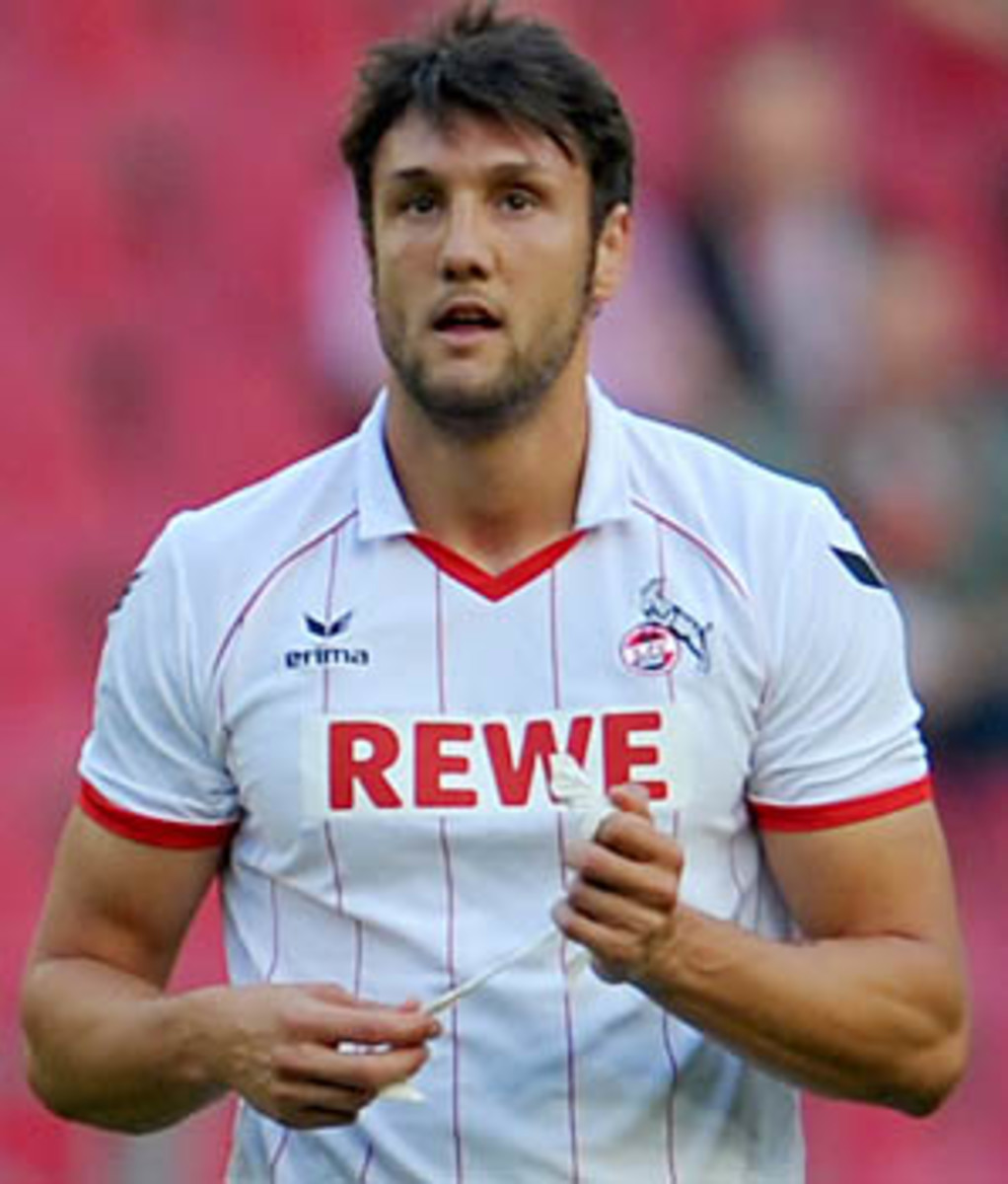German defender Pezzoni loses his job following threats, violence
The Bundesliga has long prided itself on the relatively close relationship between the clubs, supporters and players. Most training sessions are still open to the public. Tickets are affordable. Players are expected to engage with supporters in open-day events and visits to fan clubs.
But this kind of proximity can be highly problematic when red lines are being crossed. At second-division 1. FC Köln, the destructive influence of militant ultra fans recently resulted in a player being hounded out of his job. Defender Kevin Pezzoni, who was scapegoated for the club's relegation in May as well as the poor start to the current season, was released from his contract last week following a spate of violent incidents and threats.
"We looked for the best solution for him, and that was him leaving," said FC Köln coach Holger Stanislawski. "This wasn't about financial matters, but a question of his well-being. We hope that he can soon rediscover his joy for the game".
The decision was taken after Köln was beaten 2-0 at Erzgebirge Aue at the end of August, where Pezzoni had been substituted in the 34th minute.
"I was insulted by my own supporters in the stadium," the 23-year-old Pezzoni told Welt am Sonntag.
The next day, five men turned up outside Pezzoni's Cologne apartment and threatened to beat him up. Another threat ("Be careful when it gets dark") was left on the windscreen of his car. A Facebook group called for him to be shot and have his legs broken. (In February, Pezzoni suffered a broken nose after a run-in at the carnival, but it's unclear whether the motive of his assailant was personal or football-related.)
The club said the player was no longer able to play football in this hostile environment and that his wish to be relieved of his duties would be met. Then the story got worse. Pezzoni claimed it had in fact been Köln, not him, who had first raised the prospect of him leaving the club.
"I had hoped that those in charge would stand behind me and try to protect me," he said. "A club should be able to protect his players from his fans. This wasn't the case here. I never wanted to rescind my contract -- they suggested that to me. It seems to me as if they'd simply waited for an opportune moment to get rid of me."
In the end, he added, he didn't want to stay at a club that didn't fight for him but offered his release instead. There had been nothing "mutual" about his departure. Köln disagreed with that version of events.
"There's no substance to these allegations, they're unfounded and hurt himself the most," CEO Claus Horstmann said.
He also contradicted the club's earlier statements, however. Pezzoni didn't ask for his release, Horstmann now said, but to be left out of the squad for the next game against Energie Cottbus.
"Getting stripped from the squad would have been a worse option for him than the rescinding of his contract," said Horstmann, "that's why we agreed with him to let him go."
That explanation doesn't make any sense. But Pezzoni probably felt that he had little option in any case.
"What if I had continued and those guys would have turned up inside my flat the next week?" he wondered.
The suspicion must be that Köln did indeed take advantage of this awful situation to get rid of a player whose performances had been poor. If that's the case, it was a very cynical ploy made worse by the club dressing it up as a humanitarian gesture as well as the signal it sends out to those who believe that intimidation and threats are all part of the game.
In truth, Köln didn't arrive at this junction overnight. The Billy Goats are known for lack of leadership and incompetence at board level. Without strong decision-makers, sections of the fans have obviously felt moved to take matters into their own hands and subject the club to mob rule.
The team bus could not return to the club's HQ following many away games last season for fear of reprisals by irate fans. Hooligans beat up Leverkusen defender Michal Kadlec and attacked a bus carrying Mönchengladbach fans on the highway. Smoke bombs at the last game of the season, a 4-1 loss against Bayern Munich, nearly saw the match abandoned; the police barely managed to prevent a full-blown pitch invasion.
Neither the club nor local authorities have done enough to curb these excesses, despite protestations to the contrary. The anger on the terraces might have some justification in the light of the club's collective ineptitude, but its violent manifestation has happened for the same banal reason that most of hooliganism in the 1980s did: the perpetrators have simply felt that they could act with impunity.
He had wanted to show the players that "lackluster performances would not be tolerated," the initiator of the anti-Pezzoni Facebook page declared brazenly in a live TV show.
Köln has belatedly woken up to the problem. The fan in question has reportedly had his membership revoked and will face a life-long stadium ban. Pezzoni has also filed criminal charges.
The club's credibility, however, was further undermined when it rashly threatened to sue the player in the wake of his outspoken comments, only to change its mind again a day later. As a consequence of this unedifying spectacle, Köln's shirt sponsor has publicly questioned its continued support.
And Pezzoni? He's currently looking for a new club in England, where clubs place little to no importance of keeping the fans close to the players. But they at least look after their employees with a degree of care unheard of in Cologne.






